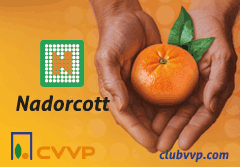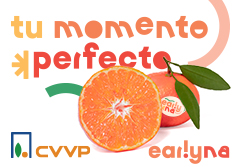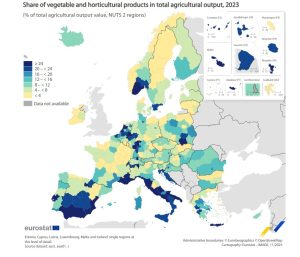During the Europatat Congress held in Lille in mid-June, Fruit Today Magazine had the opportunity to speak with Berta Redondo, Secretary General of the European association. She shared insights into the structure of the organization, its work, and the main challenges it faces.
Europatat currently brings together 71 members from 20 European countries, both from the EU and others like Norway and Switzerland. Its network includes the entire potato value chain: from seed companies (such as Agrico, HZPC, Meijer, Europlant and others), to traders and packers, as well as key auxiliary businesses and promotional organizations.
Organized to meet sector needs
Europatat operates through five specialized commissions that allow it to respond effectively to both current and future challenges in the sector:
Seed Potato Commission: Focuses on ensuring access to international markets for seed potatoes and defending the sector against restrictions in third countries.
Ware Potato Commission: Analyzes market conditions, forecasts harvests, and seeks solutions to curb the decline in fresh potato consumption, promoting alternatives tailored to modern consumers.
Technical Commission: Addresses issues related to food safety, phytosanitary product regulations, and other technical matters to ensure that potatoes meet quality and safety standards.
Sustainability Commission: Supports businesses in adopting environmental and social responsibility criteria, helping them align with current market demands and meet the Sustainable Development Goals (SDGs).
RUCIP (Arbitration for the Potato Sector): Provides a specialized dispute resolution system for potato marketing, with sector experts acting as arbitrators to offer fast, effective, and cost-efficient alternatives to traditional court procedures.
A lobbying success: The Packaging Regulation
One of the most recent and illustrative examples of Europatat’s lobbying efforts in Brussels was its role in shaping the EU Packaging and Packaging Waste Regulation for fruits and vegetables. The original draft by the European Commission proposed banning all packaging for products under 1.5 kg—a measure that would have critically impacted the potato sector, which traditionally uses mesh bags and similar formats.
Europatat, alongside other European associations, took on the responsibility of representing the sector in this key debate. Through direct meetings and negotiations with the European Commission, it succeeded in ensuring that the final regulation only banned single-use plastics for packaging under 1.5 kg. Other packaging options—such as paper and mixed-material mesh bags—remained permitted.
This victory clearly demonstrates the value of having an effective representative in Brussels to defend the interests of such a vital agricultural and commercial sector.
A changing consumer and fresh challenges
However, the biggest challenge facing the association—and widely discussed during the Congress—is the decline in fresh potato consumption and how to appeal to a new generation of consumers. “Many of them may have a distorted view of potatoes, thinking they are fattening or boring. But they are increasingly choosing options like microwaveable or fresh-cut potatoes (V range),” explains Redondo.
RELATED NEWS: Patatas Beltrán: Innovation and commitment to Spanish-grown potatoes
Other key concerns for the sector include the impact of climate change on European harvests and the spread of pests. “Pests previously seen only in southern European countries, like the tuber flea beetle, are now appearing in countries like Austria. The most pressing problem is that we lack active substances to combat them. Considerable efforts are being made with alternative substances, but no fully effective solution has been found,” the Secretary General states.
Additionally, Europatat advocates in Brussels, alongside Freshfel, for the adoption of new genomic techniques such as CRISPR. “It’s crucial for Europeans to distinguish clearly between genetically modified organisms and gene editing—these are fundamentally different technologies. Gene editing could accelerate the development of new potato varieties by many years, without any associated risks,” Redondo concludes.























